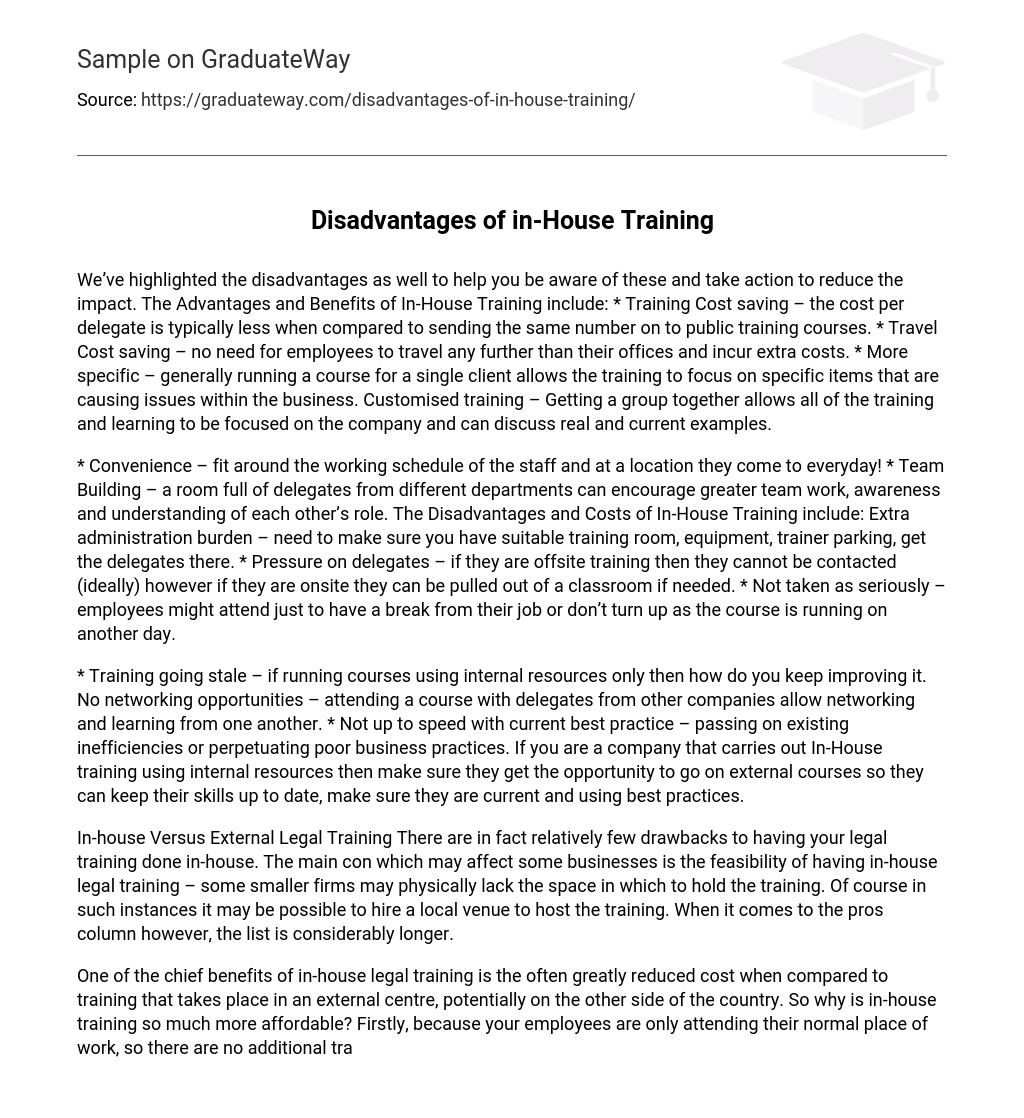We’ve highlighted the disadvantages as well to help you be aware of these and take action to reduce the impact. The Advantages and Benefits of In-House Training include: * Training Cost saving – the cost per delegate is typically less when compared to sending the same number on to public training courses. * Travel Cost saving – no need for employees to travel any further than their offices and incur extra costs. * More specific – generally running a course for a single client allows the training to focus on specific items that are causing issues within the business. Customised training – Getting a group together allows all of the training and learning to be focused on the company and can discuss real and current examples.
* Convenience – fit around the working schedule of the staff and at a location they come to everyday! * Team Building – a room full of delegates from different departments can encourage greater team work, awareness and understanding of each other’s role. The Disadvantages and Costs of In-House Training include: Extra administration burden – need to make sure you have suitable training room, equipment, trainer parking, get the delegates there. * Pressure on delegates – if they are offsite training then they cannot be contacted (ideally) however if they are onsite they can be pulled out of a classroom if needed. * Not taken as seriously – employees might attend just to have a break from their job or don’t turn up as the course is running on another day.
* Training going stale – if running courses using internal resources only then how do you keep improving it. No networking opportunities – attending a course with delegates from other companies allow networking and learning from one another. * Not up to speed with current best practice – passing on existing inefficiencies or perpetuating poor business practices. If you are a company that carries out In-House training using internal resources then make sure they get the opportunity to go on external courses so they can keep their skills up to date, make sure they are current and using best practices.
In-house Versus External Legal Training There are in fact relatively few drawbacks to having your legal training done in-house. The main con which may affect some businesses is the feasibility of having in-house legal training – some smaller firms may physically lack the space in which to hold the training. Of course in such instances it may be possible to hire a local venue to host the training. When it comes to the pros column however, the list is considerably longer.
One of the chief benefits of in-house legal training is the often greatly reduced cost when compared to training that takes place in an external centre, potentially on the other side of the country. So why is in-house training so much more affordable? Firstly, because your employees are only attending their normal place of work, so there are no additional travel expenses to pay out. If you’re training a large number of employees, these savings can be considerable.
Likewise, there are no additional expenses to pay for accommodation and other items, as may have been the case if training was taking place some distance away. These savings are important reasons to consider bringing your training in-house, but they are not the only reasons. A More Efficient Way Of Training? As well as money, in-house legal training can save substantial amounts of time. No additional travel means that training can start earlier and finish earlier, making it a far less disruptive option.
Where training in an external centre might mean losing an entire day or more of productivity, in-house legal training enables your team to stay on top of their work-load and answer any queries that may come in. If your training session only lasts for half a day, the other half of the day can be as productive as usual. Another important consideration is the way people learn. While some people may enjoy the prospect of travelling to somewhere new to undertake their training, for others it can be a stressful experience which actually distracts them from what they are.





